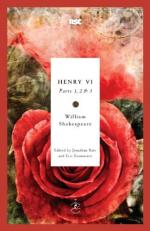|
This section contains 8,816 words (approx. 30 pages at 300 words per page) |

|
SOURCE: Linton, David. “Shakespeare as Media Critic: Communication Theory and Historiography.” Mosaic 29, no. 2 (June 1996): 1-21.
In the following essay, Linton examines the Jack Cade Rebellion in Henry VI, Part 2, and contends that underlying Cade's suspicion of people who are literate is Shakespeare's belief that literacy can be abused by the powerful to suppress the poor.
The current tendency to explain everything from election results to the breakdown of the family in terms of media influence attests to the belief that the communicating practices of a culture play decisive roles in the outcomes of human endeavors. In analyzing the nature of these influences and the characteristics of the outcomes, some communications theorists and historians focus on the effects of a medium's form while others attend to its content. Content-analyses most often deal with controversial subjects such as violence, erotica, propaganda or political messages, while effects-analyses focus on the social...
|
This section contains 8,816 words (approx. 30 pages at 300 words per page) |

|


